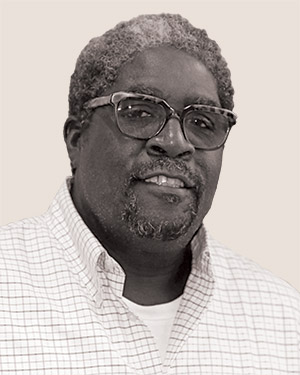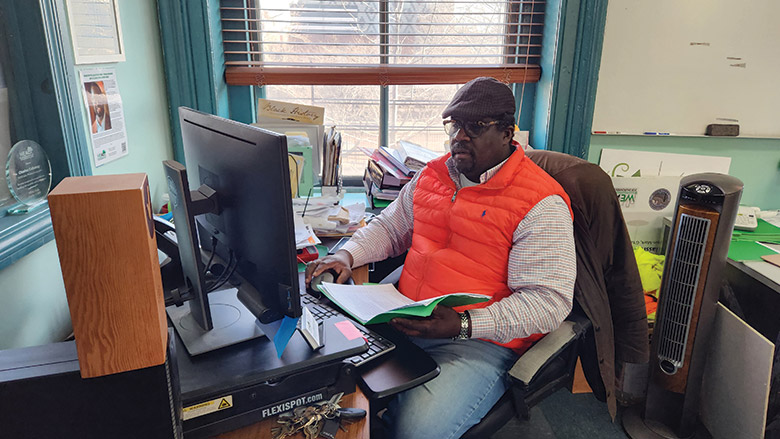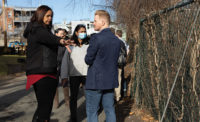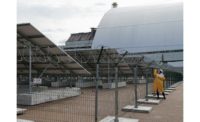
Related Article:
NY Minority Worker-Owned Solar Firm Flips Labor-Model On Its Head
Back to:
25 Top Newsmakers
It could be solar, it could be wind. It could be green roofs or clean streets. Whatever the mechanism for greening the built environment, there is one force that drives environmental justice activist Charles Callaway: community. The director of workforce development at New York City nonprofit WE ACT for Environmental Justice says he’s the “product” of a settlement house where “people believe in each other.” Callaway has worked on multiple campaigns for a more sustainable and healthy built environment since joining WE ACT in 2007. One of Callaway’s most innovative contributions to his community is helping a small group of WE ACT workforce graduates create a worker-owned cooperative called S.U.N.S., Solar Uptown Now Services. A year before co-founding S.U.N.S in 2019, Callaway’s frustration with the solar industry’s low-wage, temporary positions for newly trained installers came to a head, prompting him to help 11 WE ACT grads start a solar installation business. He believes it is the first exclusively minority worker-owned solar company in the New York City metropolitan area. Since its founding, the co-op, along with supplemental labor from WE ACT’s workforce program, has installed 18 MW of solar panels in the region. “You have to start at the beginning,” he says. “We can’t wait until someone figures it out for us.”
Callaway’s first concrete understanding of environmental injustice came in the 1990s when he and his father ran a food stand in Riverbank State Park in Manhattan, which was built on top of a sewage treatment plant. “I knew that I was on top of an unwanted facility in that community.”
Today, his leadership is perhaps most apparent through WE ACT’s green workforce program, the Green Institute. Callaway says people affected by environmental ills should reap the benefits that a green economy brings, including well-paying and lasting jobs. Otherwise, “what good is it?” he asks.
WE ACT’s Green Institute has trained more than 800 unemployed or underemployed northern Manhattan residents for careers in the construction industry. Students obtain certificates for OSHA, energy efficiency, solar photovoltaic installation, asbestos removal and flagging and scaffolding. Of the Green Institute’s four focus areas (solar, offshore wind, electric vehicles and building electrification), solar is where they’ve made headway, Callaway says, with the rest on the horizon. Since 2016, he has worked with nonprofits Solar One and the Urban Homesteading Assistance Board to organize a buyer’s group of low-income co-op houses that would make purchasing affordable rooftop solar systems possible. His leadership included grassroots efforts such as driving through Harlem to post flyers and conducting workshops. Callaway “would energize the whole room about how we can use solar to make Harlem a leader in the clean energy transition,” says Anika Wistar-Jones, director of Solar One’s Affordable Solar program.
Callaway is “relentlessly committed to his team of worker-owners and making sure they get paid good wages to do good work,” says Wistar-Jones. “Where other people might lament the lack of good job opportunities for workforce trainees, Charles sees the problem and thinks, ‘What needs to happen for this to change?’”
Callaway hopes the worker solar co-op becomes a fully sustainable business and completes solar projects in neighborhoods that need it most. “In disadvantaged communities there are usually the worst built environments possible,” he says. “Our goal is to actually build our own community back up.”
All ENR 2023 Top 25 Newsmakers will be honored at the Award of Excellence Gala on April 11 in New York City.




